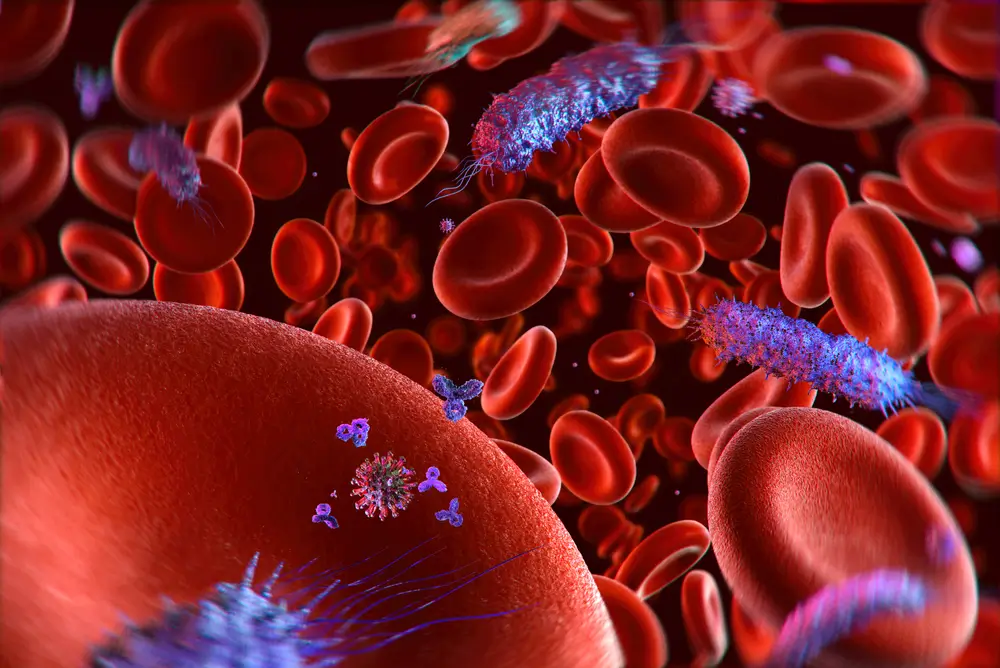Bloodborne pathogens like HIV, Hepatitis B (HBV), and Hepatitis C (HCV) can enter your body through cuts, splashes, or direct contact with infected blood and body fluids. Many workers, especially those in healthcare, sanitation, emergency response, and cleaning jobs, face these risks every day.
The good news is: you can protect yourself by following a few simple habits. You don’t need complex gear or high-level science. What you need is awareness, consistency, and smart action.
Let’s look at 5 easy ways to stay safe from bloodborne pathogens at work.
1. Always Wear the Right Protective Gear (PPE)
Personal Protective Equipment (PPE) is your first line of defense. It keeps blood and fluids away from your skin, eyes, mouth, and clothes.
What PPE may include:
- Gloves (single-use, disposable)
- Gowns or lab coats
- Face shields or goggles
- Masks or respirators
- Shoe covers (in high-risk areas)
When to wear PPE:
- When cleaning up blood or body fluids
- When giving first aid
- When handling contaminated tools or laundry
- During medical or dental work
Tips:
- Use gloves every time you touch something that may be contaminated.
- Don’t reuse disposable PPE.
- Remove PPE carefully to avoid touching the outside.
- Throw it away in the right container.
2. Handle Sharps Safely
Used needles, scalpels, and broken glass can carry blood and cause infection with just a small poke or cut.
How to stay safe:
- Never recap needles. If you must, use one-hand scoop method.
- Put all sharps in a hard, leak-proof sharps container right after use.
- Don’t throw needles in regular trash.
- Don’t carry sharps in your pocket or hand.
- Report any injury immediately, even if it seems small.
One careless moment with a sharp item can change your life. Always treat sharps with caution.
3. Clean Spills the Right Way
Blood and body fluid spills must be cleaned up quickly and correctly to stop germs from spreading.
Steps for safe cleanup:
- Put on gloves and PPE.
- Cover the spill with paper towels or absorbent material.
- Pour a disinfectant (like bleach) over the area. Let it sit for 10 minutes.
- Wipe up the spill carefully.
- Throw all used materials into a biohazard bag or labeled waste bin.
- Wash your hands after removing gloves.
Important: Bleach solution should be 1 part bleach to 10 parts water if you’re making it yourself. Don’t mix it with other cleaners.
4. Practice Good Hand Hygiene
Handwashing is the simplest and most powerful way to stop the spread of infections. It removes tiny particles of blood or fluid that you may not even see.
When to wash hands:
- After removing gloves
- Before and after treating a wound
- After touching any surface that might be dirty
- After cleaning spills
- After using the bathroom or handling garbage
Steps:
- Use soap and water. Rub all parts of your hands for at least 20 seconds.
- If water is not available, use hand sanitizer with at least 60% alcohol.
Tip: Even if you wore gloves, wash your hands after. Gloves can have small tears or leave residue.
5. Know What to Do If You’re Exposed
Sometimes, accidents happen. You might get a cut, a splash to your eye, or a poke from a needle. Knowing what to do right away is key.
Follow these steps:
- Wash the area with soap and water.
- Flush eyes or mouth with clean water if fluids splashed there.
- Tell your supervisor immediately.
- Go to occupational health or ER for medical care.
- Get tested and follow up as needed.
Time matters. The sooner you act, the better your chance of avoiding illness.
Bonus Tips for Safer Work Habits
- Don’t eat, drink, apply makeup, or touch your face in work areas.
- Treat all blood and body fluids as if they are infected, this is called Universal Precautions.
- Keep your work area clean and organized.
- If something looks dirty, treat it as contaminated.
- Always read and follow the biohazard signs and labels.
What About Vaccination?
If you work in healthcare or any job with exposure to blood, you should get the Hepatitis B vaccine. It’s usually a series of three shots and offers strong protection.
Ask your employer or health department if it’s offered at your workplace. Many companies provide it free of cost.
Who Needs This Information?
This guide is useful for:
- Nurses, doctors, and EMTs
- Lab and dental workers
- Housekeepers and janitors
- Laundry staff in hospitals
- Police and corrections officers
- Tattoo and piercing artists
- Maintenance workers in healthcare or schools
Even if you’re not in one of these jobs, if you ever clean up blood or handle someone else’s injury, you’re at risk.
Final Thoughts
You don’t need a medical degree to protect yourself from bloodborne pathogens. What you need is basic awareness and smart habits.
Let’s recap the 5 simple ways:
- Wear the right PPE
- Handle sharps carefully
- Clean spills correctly
- Wash your hands often
- Act fast if you’re exposed
These steps are small but powerful. They keep you, your team, and your family safe.
Staying protected is not about doing more, it’s about doing the right things every time.



